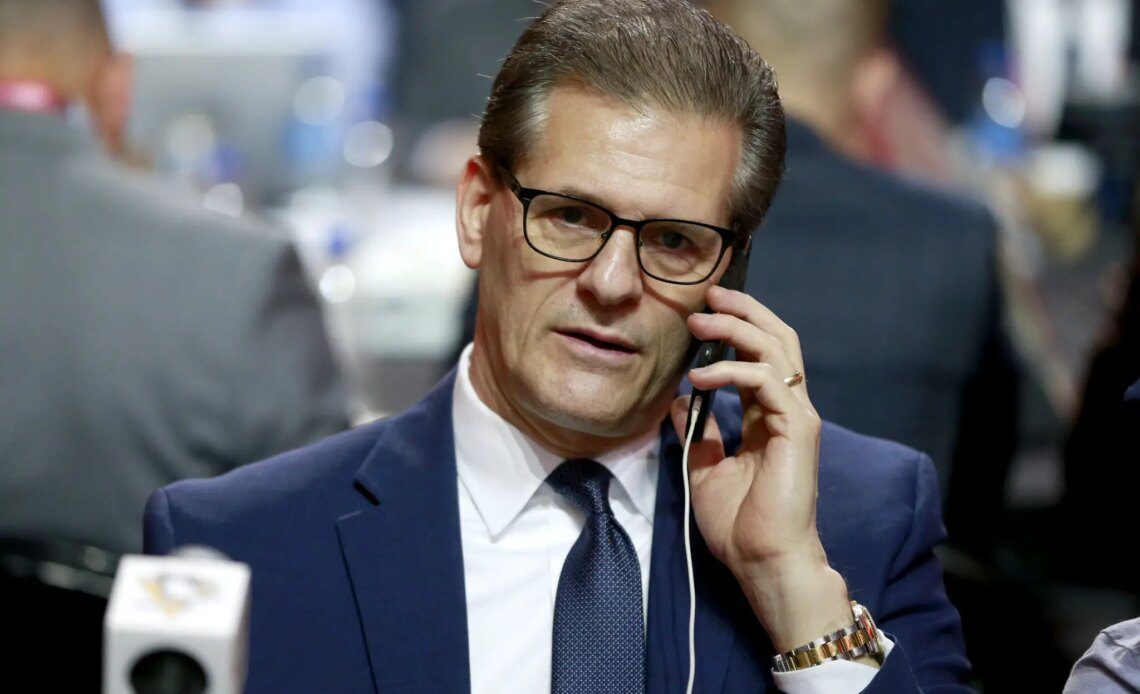Over a total of seven seasons, from 2014 until his resignation in 2021, the Pittsburgh Penguins‘ front office was blessed to be led by one of the top managerial minds in the history of the game. Jim Rutherford, himself a former player with the Detroit Red Wings, Penguins, Toronto Maple Leafs, and Los Angeles Kings, was brought into the management sphere with the Hartford Whalers/Carolina Hurricanes organization in 1994. He quickly became one of the best general managers (GM) in the NHL, and he is the proud architect of three Stanley Cup-winning teams.
Throughout his managerial career, Rutherford cultivated a reputation as one with the ability to orchestrate the perfect deal, whether at the deadline or in the offseason. As GM of the Hurricanes, he acquired the fourth-overall draft pick (Andrew Ladd) from the Columbus Blue Jackets for two picks, a 2004 first-rounder (Alexandre Picard) and a 2004 second-rounder (Kyle Wharton). He picked up future hall-of-famer Mark Recchi from the Penguins in 2006, the year the ‘Canes went on to win the Stanley Cup, with both Ladd and Recchi playing key roles in a dominant playoff run. He continued that success when he moved on to take over as GM of the Penguins, bringing in players like Connor Hall and Ron Hainsey, critical pieces to the Penguins’ back-to-back titles in 2015-16 and 2016-17.
Although he stepped down from the role in 2021, his successor, Ron Hextall, has seen similar initial success, continuing the legacy and keeping the winning tradition alive. However, the events of this season have called into question whether some of those deals have been worth it long term, as the Penguins are struggling in the standings and with the salary cap.
Long-Term Contracts Being Re-Evaluated
The Penguins’ salary cap history has been previously documented. Last offseason, they struggled to offload salary as they found themselves a fill $1 million over the cap. In fact, each time the salary cap was calculated — last season’s upper limit was $81.5 million — they exceeded it. They alleviated some of the pressure through demotions, sending players on more complex deals to the American Hockey League (AHL). However, they also took on or created deals that complicated their relationship with the cap further. When they acquired Rickard Rakell at last season’s deadline, many assumed he…
Click Here to Read the Full Original Article at The Hockey Writers…

